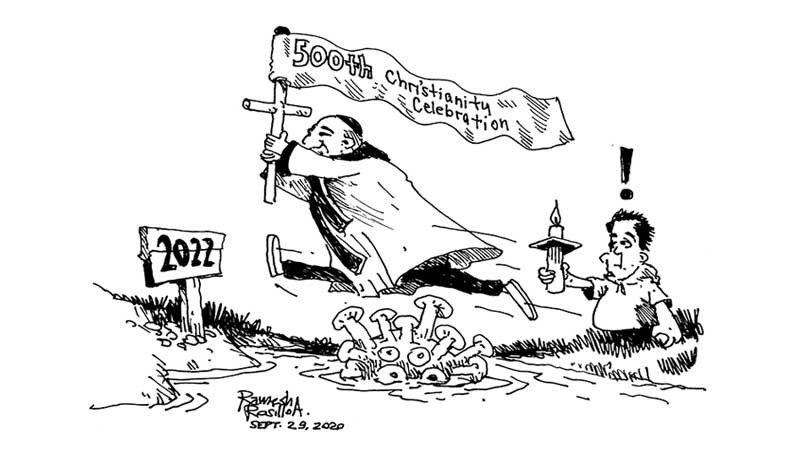EDITORIAL - 1565, not 1521

Given the abnormal conditions brought about the current global pandemic, the Church has decided to push back the quincentennial celebration of Christianity in the Philippines to 2022.
“Due to the crisis caused by the COVID-19 pandemic, it was necessary to change the schedule of our celebration of the 500 years of Christianity. So, it is now going to be a whole year celebration until 2022,” Catholic Bishops’ Conference of the Philippines (CBCP) President and Caloocan Bishop Pablo Virgilio David said
However, if we have to consider history, perhaps we should push the date of the quincentennial celebration of Christianity in the Philippines to 2065.
It had become widely accepted --and perhaps incorrectly-- that Christianity started in the country in 1521 when Portuguese explorer Ferdinand Magellan arrived here.
However, some historians, as well as one columnist in this newspaper, are of the opinion that 1521 should not be considered the year Christianity took root in the Philippines.
They argue that while Christianity was indeed brought here, and a few local chiefs baptized into the faith here and there, there was no true campaign to propagate the Christian faith it. The baptisms were done more to awe the unruly natives into submission rather than to spread it.
Then we all know what happened to Magellan just a month later.
The new faith would later fall into obscurity with the death of Magellan and the departure of what was left of his men. There was really no one left in the islands who could strengthen the faith of the natives who had been baptized.
Because there are no accurate records to turn to, it might even be safe to say the Christian faith stagnated in the years between the arrival of Magellan and the next European to actually influence the Philippines, Miguel Lopez de Legazpi.
Historians and writers point more to 1565, the year Legazpi arrived and actually gained foothold and later even establishing a form of government over the entire archipelago, as the more proper year to celebrate our Christianization.
Unlike Magellan, who only arrived here with the main purpose of exploration, Legazpi’s men came here with the expressed purpose of establishing a colony and propagating the Christian faith.
It is understood why many would rather celebrate the quincentennial celebration in 2021 or 2022; they don’t see themselves still alive by 2065, and want to be part of this momentous and once-in-a-lifetime occasion. They cannot be blamed for that.
But if we are to really stick to history then we should not ignore the facts.
The fact that the Church celebrated 1965 as the 400th year of the Christianization of the Philippines should also lend credence to this argument.
- Latest
























